The Cost of Hiring Salesforce Developers: What to Expect
Salesforce
5 MIN READ
September 27, 2025
![]()
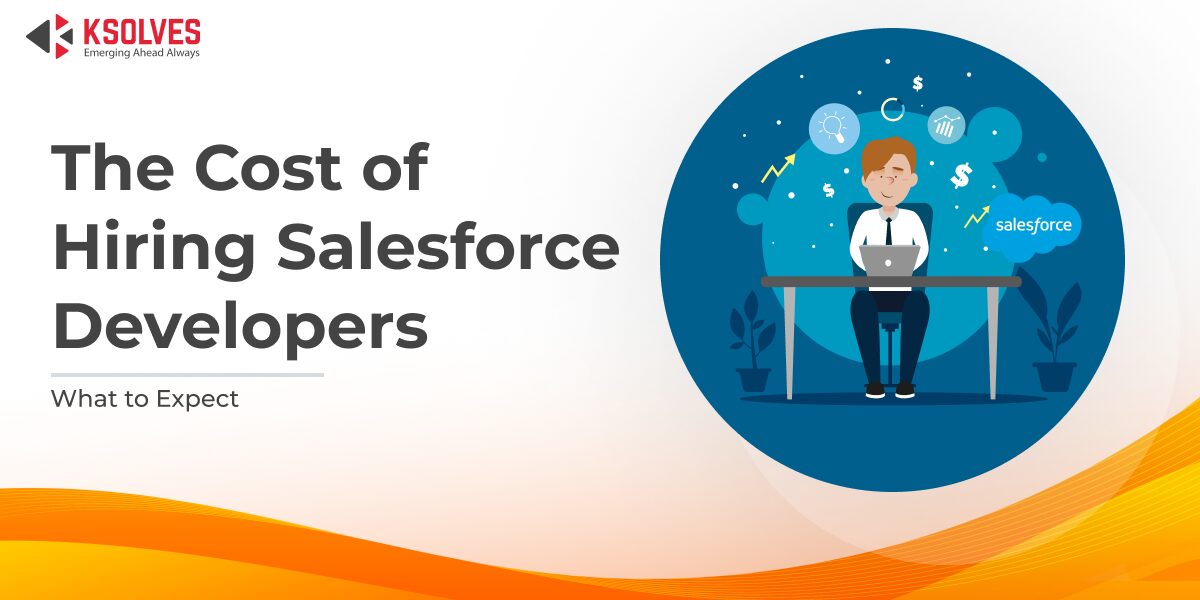
If you’ve started using Salesforce, or are planning to, you’ve probably realized one thing fast: out-of-the-box features only get you so far. To really make Salesforce work for your business, you’ll need skilled developers who can customize, integrate, and optimize the platform based on your goals.
But here’s the catch: hiring Salesforce developers isn’t always straightforward. Costs can range from surprisingly affordable to surprisingly high, depending on who you hire, where they’re based, how complex your needs are, and how you engage them.
In this article, we’ll walk you through what affects the cost to hire Salesforce developers, what different hiring models look like (freelancers, in-house, or certified partners), and what hidden costs you should watch out for.
Whether you’re budgeting for a short-term project or long-term support, this guide will help you make a smart, informed decision.
Key Factors That Influence Salesforce Developer Costs
When budgeting for Salesforce development, it’s essential to recognize that no two developers have the same price tag. Multiple variables influence how much you’ll end up paying—some obvious, others less so. Here’s a closer look at the key factors that can drive up or down the cost of hiring a Salesforce developer:
1. Experience Level
Just like in any technical field, experience has a direct impact on cost.
- Junior developers (1–2 years of experience) are typically more affordable and can handle basic configurations, workflows, and smaller customizations.
- Mid-level developers (2–5 years) come with broader knowledge across Salesforce Clouds and can work independently on moderately complex tasks.
- Senior developers or architects (5+ years) not only build robust solutions but also guide architecture, integrations, and long-term planning. Their strategic input usually comes at a premium, but can save time and cost down the line.
Pro Tip: If you’re handling a critical integration or planning long-term scale, investing in senior-level talent can reduce risks and rework later.
2. Certifications
Salesforce certifications are a good indicator of a developer’s credibility and expertise. Certified developers often charge more, but for good reason.
- Certifications like Platform Developer I & II, Salesforce Architect, or App Builder validate hands-on knowledge and specialization.
- Developers with multiple certifications or niche ones (like Salesforce CPQ Specialist or OmniStudio Developer) tend to charge higher rates, especially when working with complex or regulated industries.
Pro Tip: Hiring certified professionals reduces onboarding time and are more likely to follow best practices, critical in complex Salesforce environments.
3. Geographical Location
Where your Salesforce consultant is based can have a big impact on cost. Rates often reflect the local cost of living and market demand. For instance, consultants in North America, Western Europe, or Australia typically charge more due to higher operational costs and greater demand. In contrast, top-tier talent from countries like India, the Philippines, or Eastern Europe may offer the same level of expertise at a more affordable rate.
But geography isn’t just about cost—it also affects collaboration:
- Cultural and language alignment: Consultants fluent in your preferred language or familiar with your regional business practices may charge a premium for that added clarity and efficiency.
- Time zone compatibility: Hiring a Salesforce developer in a similar or overlapping time zone can speed up turnaround times and simplify communication.
- Reputation and firm size: Well-known consulting firms or Salesforce Summit Partners often charge more, not just for their expertise but also for the trust, reliability, and structured delivery they bring.
- Post-implementation support: Some regions may offer bundled support and maintenance services, which can influence the total cost of engagement.
Pro Tip: Don’t just compare hourly rates. Consider communication ease, turnaround time, and the value delivered over the long term.
4. Industry Specialization
If your project is in a regulated or industry-specific domain, you may need a developer with relevant experience and compliance awareness.
- For example, hiring a Salesforce developer who’s worked with financial firms will better understand data sensitivity, regulatory constraints (like GDPR or FINRA), and customer segmentation needs.
- In healthcare, developers often need to align solutions with HIPAA or EMR systems.
These specialists usually charge a premium, but they add value by reducing compliance risks and ensuring solutions are tailored to your sector.
Pro Tip: Ask for industry-specific case studies before making a decision.
5. Project Scope
The complexity of your Salesforce project plays a big role in cost.
Small customizations like tweaking page layouts, setting up reports, or adding simple automations are usually quick tasks, often billed hourly or through short-term contracts.
Large-scale implementations, such as building custom Lightning components, integrating third-party tools, or migrating from legacy CRMs, require deeper expertise, longer timelines, and often project-based pricing.
Pro tip: Some firms offer flat-rate monthly support, while others charge per milestone. Be clear on your scope before you hire.
Understanding the Cost Models of Hiring Salesforce Developers
Understanding how Salesforce consultants charge for their services helps you plan your budget more effectively. Here are the top four pricing models most commonly used in the industry:
1. Hourly Rate Model
Many businesses, especially startups or those with fluctuating needs, prefer hiring Salesforce developers on an hourly basis. This flexible model allows you to pay only for the actual hours worked. Rates typically range from $25 to $150+ per hour, depending on factors like experience level, certifications, and geographic location.
When to choose this model:
This model is ideal for short-term projects, ad hoc enhancements, or when the scope isn’t clearly defined. For example, if you need to fix bugs, optimize workflows, or build a few custom reports without committing to a long-term engagement, hourly billing provides agility without overhead.
Key Benefits:
- Pay as you go
- Great for maintenance or trial work
- Easy to start or stop as needs evolve
Watch out for: Without a defined scope, costs can increase quickly. It’s important to track hours closely and set clear expectations from the start.
2. Fixed-Price Projects
Under this model, you agree on a defined scope and a fixed cost upfront. The pricing is determined based on the project’s complexity, timelines, and deliverables. Common fixed-price Salesforce projects include custom app development, Lightning web component creation, and third-party system integrations.
When to choose this model:
Best for well-defined, one-time projects where you know exactly what you need. This could include building a custom portal, setting up automation flows, or migrating data from another CRM.
Key Benefits:
- Predictable budgeting
- Milestone-based deliverables
- Clear accountability
Watch out for: Scope creep can lead to change requests and renegotiations. This model requires thorough planning and clarity on all technical requirements before kickoff.
3. Dedicated Resource or Retainer Model
In this setup, you hire a Salesforce developer (or a team) on a monthly retainer. You get a set number of hours or services each month for a flat fee. This is like having an external team on standby—available when you need them, without the commitment of full-time employment.
When to choose this model:
Ideal for businesses that need ongoing Salesforce support, system maintenance, or incremental improvements after initial implementation. It’s especially valuable for companies without in-house Salesforce experts but with active usage across teams.
Key Benefits:
- Consistent access to experts
- Prioritized support and quick turnaround
- Predictable monthly cost
Watch out for: Ensure your monthly needs justify the retainer. Also, clarify what’s included to avoid misaligned expectations.
4. In-House Hiring (Full-Time Developer)
Hiring a full-time Salesforce developer gives you dedicated expertise in-house. In the U.S., annual salaries generally range from $90,000 to $140,000, excluding benefits, bonuses, and infrastructure costs.
When to choose this model:
Ideal for large enterprises or companies with a long-term Salesforce roadmap and frequent platform updates. If you manage complex orgs, multiple clouds, or industry-specific customizations, an in-house developer offers full-time strategic value.
Key Benefits:
- Full control over project priorities
- Institutional knowledge stays within your team
- Seamless collaboration with internal stakeholders
Watch out for: High cost of hiring, onboarding, and retention. Also, finding skilled developers can take time in competitive markets.
Comparing Salesforce Developer Pricing Models: Which One Fits Your Needs?
| Pricing Model | Typical Cost | Best For | Pros | Cons |
| Hourly Rate | $25 – $150+ per hour | Small tasks, flexible work, short-term needs | Pay-as-you-go, flexible scope | Can become expensive if the project lacks clear boundaries |
| Fixed-Price Project | Based on scope (e.g., $3,000 – $50,000+) | Well-defined projects like custom apps or integrations | Budget clarity, scope control | Less flexibility once the scope is locked |
| Retainer Model | Monthly fee (e.g., $2,000 – $10,000) | Ongoing support, admin work, and monthly enhancements | Dedicated access, scalable support | Requires consistent workload to justify the cost |
| In-House Hiring | $90,000 – $140,000 annually | Long-term Salesforce strategy, enterprise-scale organizations | Full control, team alignment | High overhead, hiring/training costs |
Hidden and Additional Costs When Hiring Salesforce Developers
While the base cost of hiring a Salesforce developer—whether hourly, fixed, or full-time—may seem straightforward, there are several hidden or overlooked expenses that can significantly impact your budget and timeline. Understanding these in advance can help you plan more effectively and avoid project disruptions.
1. Onboarding and Ramp-Up Time
Even experienced Salesforce developers need time to understand your specific org setup, business processes, and team dynamics. This onboarding period can take anywhere from a few days to several weeks, especially in complex or highly customized environments.
Cost impact: You’re paying for this learning time, which may not deliver immediate business value.
2. Quality Issues Leading to Rework
Choosing lower-cost or less experienced developers can sometimes lead to poor-quality code or misaligned solutions. Fixing these issues later may require senior-level intervention or even complete rework.
Cost impact: Rework can double your expenses and delay go-live timelines, especially if proper QA and code reviews aren’t in place.
3. Ongoing Support, Documentation, and Handover
Many businesses overlook the importance of thorough documentation and structured handovers once a project ends. Without this, your internal teams may struggle to maintain or update the solution later.
Cost impact: Lack of documentation leads to long-term technical debt, and you may end up paying again for someone to “decode” the system later.
4. Communication Gaps with Remote Hires
If you’re working with offshore or freelance developers, time zone differences, language barriers, and unclear communication can result in misunderstandings or delays.
Cost impact: Miscommunication can slow progress, reduce efficiency, and lead to scope mismatches. This causes both time and money to be wasted.
How to Budget for Hiring Salesforce Developers
Hiring Salesforce developers is a strategic investment, and effective budgeting ensures you get the most out of that investment, without surprises down the line. Here’s a step-by-step guide to help you budget wisely for your next Salesforce development project.
1. Define Your Project Scope and Business Objectives
Start by clearly outlining your goals. Are you implementing Salesforce for the first time, enhancing an existing org, or integrating third-party systems? Understanding whether your needs revolve around admin tasks, custom development, or large-scale integrations helps you estimate the level of expertise required and the associated cost.
Tip: The more defined your scope, the more accurate your budget.
2. Break Down Short-Term and Long-Term Requirements
Many businesses focus solely on immediate development needs and overlook long-term costs such as:
- Ongoing maintenance and optimization
- Post-implementation support
- Future feature enhancements
- License or platform upgrades
Budgeting for these elements upfront ensures your Salesforce solution stays efficient and scalable over time.
3. Choose the Right Engagement Model
Your choice between hourly, fixed-price, retainer, or full-time hiring models will heavily impact cost. Each model fits different types of projects:
- Hourly: Flexible and ideal for ad hoc needs
- Fixed-price: Predictable for well-scoped projects
- Retainer: Great for continuous improvements and post-launch support
- In-house: Long-term commitment for enterprise teams
Consider which model fits your timeline, budget flexibility, and need for expertise.
4. Factor in Hidden Costs
Your budget should also include:
- Onboarding and ramp-up time
- Documentation and knowledge transfer
- Communication overhead (especially with offshore teams)
- Rework costs due to misalignment or low-code quality
These elements, if unaccounted for, can inflate your project spend unexpectedly.
5. Plan for Team Training and Adoption
Even the most advanced Salesforce services won’t drive ROI without proper usage. Allocate funds for training your internal team so they can work effectively with the new features and customizations.
Developer time may also be needed for building dashboards, automations, or user guides tailored to your team’s workflow.
6. Consider Scalability from the Start
Your Salesforce needs will evolve. Budgeting for scalability ensures your system can grow with your business. This includes planning for:
- API and third-party integrations
- New user onboarding
- Industry-specific customization
- Automation upgrades
7. Invest in Innovation
Salesforce constantly rolls out new capabilities—from AI-powered features like Einstein and Copilot to integrations with tools like ChatGPT. Set aside a portion of your budget for experimenting with these technologies. It not only keeps your system up-to-date but also gives you a competitive edge through automation and intelligent insights.
Why Choose Ksolves for Hiring a Salesforce Developer
Partnering with Ksolves means working with a team that prioritizes value, expertise, and long-term impact. When you hire Salesforce developers from us, you get access to certified professionals who understand both the platform and your business goals.
- Salesforce Summit (Platinum) Partner: A top-tier partnership level reflecting our proven success and client satisfaction.
- Certified Salesforce Experts: Access a skilled team experienced across clouds like Sales, Service, Experience, and more.
- Flexible Engagement Models: Choose from hourly, fixed-price, or retainer models to suit your project and budget.
- 12+ Years of Industry Experience: Trusted by global clients across finance, healthcare, retail, real estate, and IT.
- End-to-End Services: From implementation to post-launch support, we offer full-cycle Salesforce solutions.
- Fast Turnaround & Scalable Delivery: Agile teams ready to deliver high-quality solutions at enterprise speed.
Let’s build a smarter Salesforce experience together. Reach out to Ksolves today for a custom consultation.
Wrapping Up!
Hiring a Salesforce developer involves multiple cost factors, such as experience, location, project scope, and pricing models. From hourly contracts to full-time hires, it’s essential to choose an approach that aligns with both your goals and budget.
While cost matters, quality, scalability, and long-term value matter more. The right partner can make all the difference.
Contact Ksolves today to get a custom budget estimate tailored to your Salesforce needs. Let’s build smarter, together.
![]()
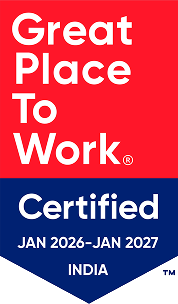
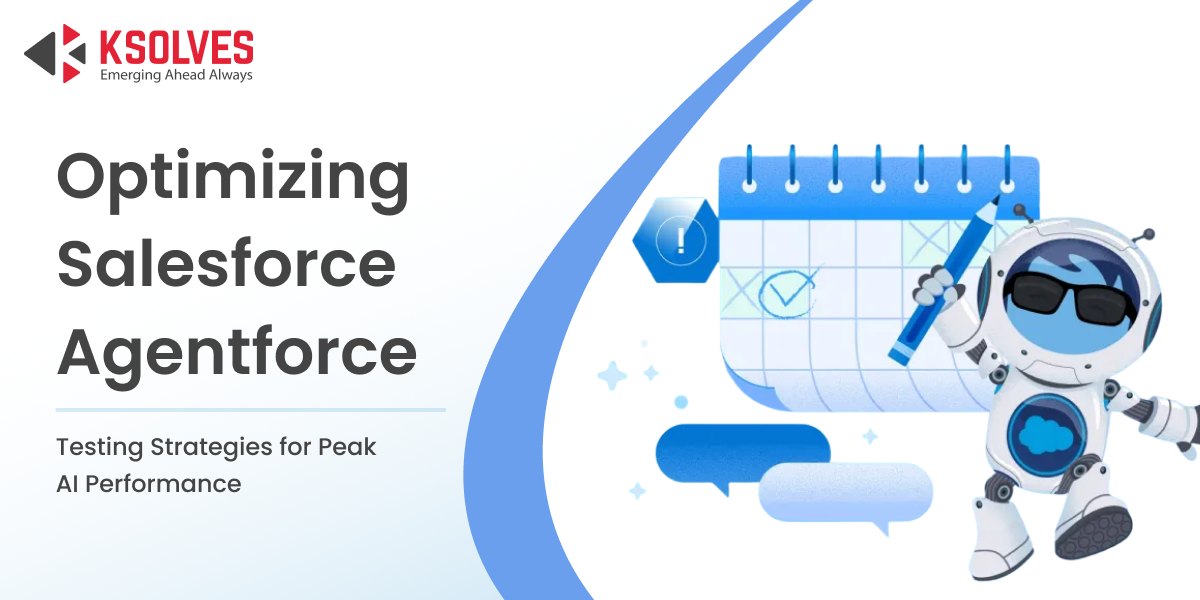
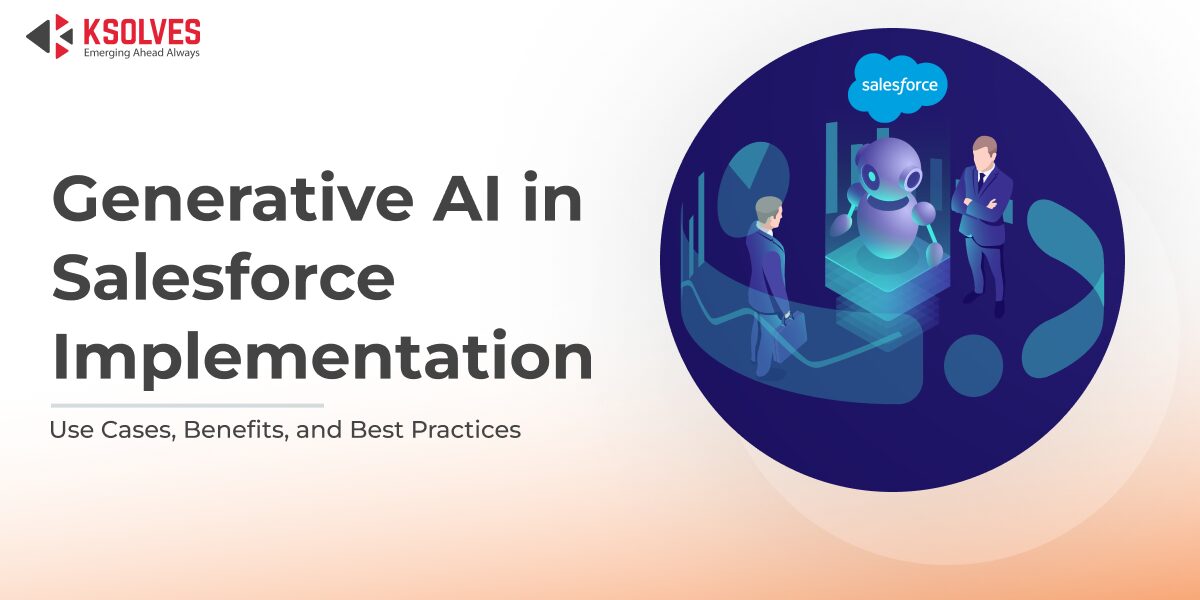
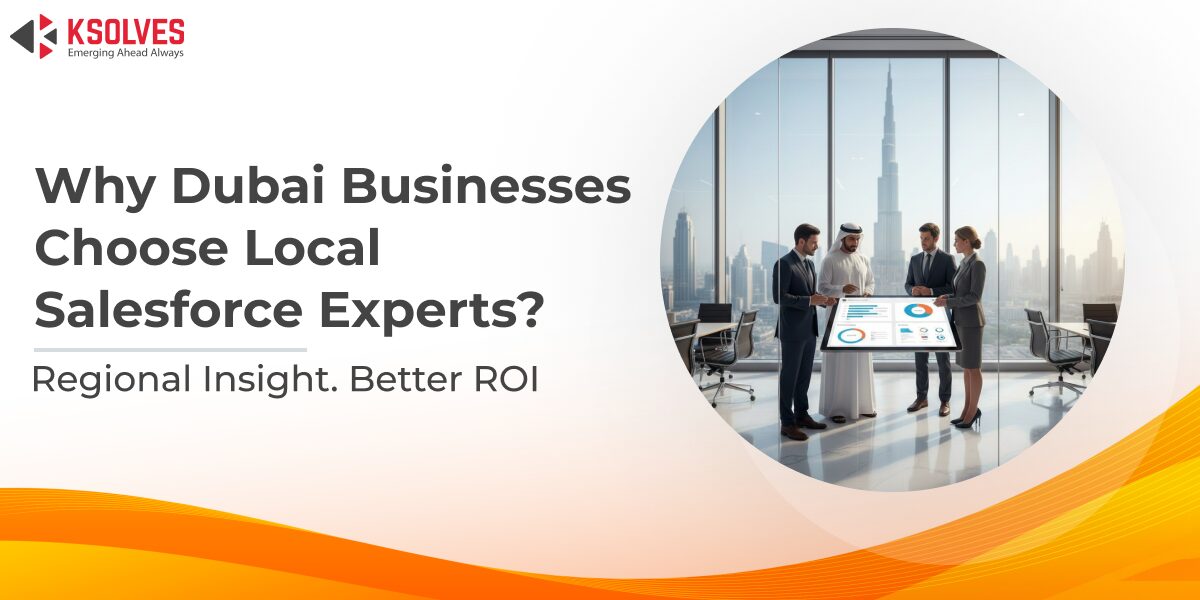




AUTHOR
Salesforce
Md. Asad Khan, an expert Technical Project Manager at Ksolves, who is a certified Salesforce architect at Ksolves, brings 7+ years of experience. He specializes in FSL, B2B, Service & Sales Cloud, and Non-profit cloud, excelling in APEX, Aura Component Framework, Lightning Components, Triggers, Visualforce, and creating insightful dashboards and reports.
Share with